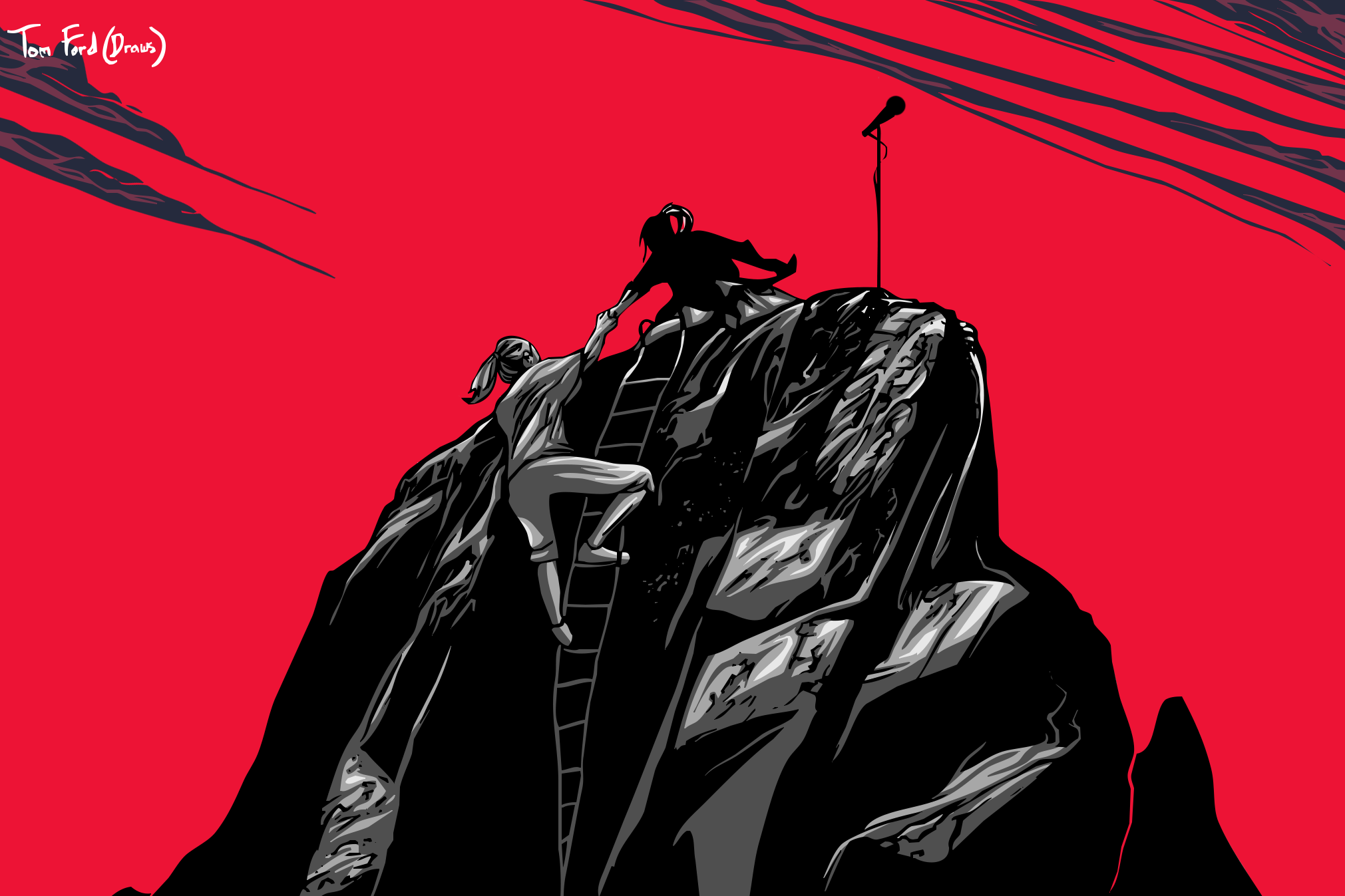Forgotten Women: How girls get swept into the sex industry – and how they can get out of it
In the latest edition of our Forgotten Women series, Lucy Anna Gray speaks to a woman whose own experience of the sex industry inspired her to help girls just like her


Rachel Lloyd was forced to leave her school in England after her abusive, alcoholic stepfather drained her mother’s finances then left the family. As an underage teen she was raped by an adult and battled with substance abuse. When she moved to Germany, her boyfriend – who was a crack addict – eventually became her pimp.
This is by no means an isolated tale. Studies show anywhere from 50 to 90 per cent of women who end up in the sex industry were sexually abused as children. Poverty is often a driving force for women to get into prostitution. Although some people may choose to work in the sex industry, many are forced into it by circumstance.
So how do we break this destructive cycle? And how do we detect when it’s beginning in the first place?
Rachel Lloyd’s story has a happy ending. After falling into commercial sexual exploitation (CSE), she escaped and effected real change, and now shares her story to help other women.
* * *
“When you’re a kid you don’t realise you’re poor until you go to other people’s houses and you’re like ‘oh God, we’re really, really poor’”, the now 44-year-old says of her childhood.
As a young girl living in Portsmouth, her “dedicated” mother remarried a man that Rachel previously thought was her father.
“He was violent to her. And so it went from just me and her to a house full of alcoholism and domestic violence. And then she began to drink and had a nervous breakdown.”
When she was 13 years old, Rachel’s stepfather left the small family with a trail of debt in his wake. To stop them from losing the house, Rachel dropped out of school and lied about her age to work three jobs, constantly changing place for fear of being found out.
“As many kids of alcoholics do, I felt I was hyper responsible and mature for my age ... Feeling like this – even though you have the brain of a child – is pretty unsafe. Especially for a girl.”
Thrust into the adult world Rachel was repeatedly taken advantage of and abused by older men, including being raped at 13; she started doing drugs and drinking heavily, got into violent relationships. During these teenage years she attempted to kill herself several times, three attempts hospitalising her.
“If I look back at that trajectory I was a walking risk factor.”
At the height of this tumultuous period, Rachel met some girls at a pub. They had just returned from Germany and were full of praise for their lives out there. Affected by their tales, she sold her Christmas presents for a one-way ticket, with £200 in her pocket.
Far from the fresh start she’d hoped for, Rachel soon found out the girls had been exaggerating about their exciting lives because “they didn’t want anyone to know they were struggling”. Within a matter of weeks she was broke and living in a B&B, taking care of one of the other young women that was pregnant.
Trapped in a foreign country with no money, the 17-year-old soon turned to stripping to make enough money to get back home.
“That was one of those decisions that was completely life-changing. I got sucked in very, very quickly.”
At first Rachel enjoyed dancing and felt “empowered” by it. “As someone who was raped at 13 and sexually assaulted a bunch of times after that ... I felt like I was taking power back over men and reclaiming my body.”
Although a legal strip club, the girls were expected to do far more than dance. It wasn’t long before dancing became the “side hustle” and Rachel was trading sex for money.
“I thought it would be short term and no one would have to know about it. And then you start losing that line of ‘I’ll never do this, I’ll never do that’, and that line keeps moving. Especially that strip club culture, it feels glamorous ... You step on that stage and you feel a weird sense of control and power, you feel wanted and desired.
“I think that with a lot of girls when they get into the life, especially if you’ve got prior sexual abuse history, you can really feel like this is your way of reclaiming something, and then you realise you’re reclaiming shit,” Rachel says.
The feeling of power truly ended when she met her boyfriend, an American Iraq War veteran. He had a severe crack addiction, and introduced Rachel to the drug too. As his dependency on her grew, he became her pimp, demanding she hand over all the money she made from work.
Rachel claims he tried to kill her on several occasions, and suffered from serious paranoia. The relationship became so dangerous, Rachel gave the women at the club an address to ship her body to if she didn’t come in for work. “I was convinced I was going to die then at 18 – and I didn’t give a shit.”
During this time Rachel had enough money to go back to England. On her second night home she went clubbing with her friends, and a girl came up to her and said “did you hear there’s some prostitute from Germany here?”. The stigma and shame of everyone knowing Rachel worked in the sex industry sent her back to Germany.
Eighteen months into the relationship, the police started look for her boyfriend so he fled the country; this was Rachel’s chance to escape.
She happened to meet a woman who sang in a choir at an American military base, who helped her get a job as a nanny for one of the church families. She lived and worked there for three years until they all moved to the US.
A year after arriving in America, with only a laptop and $30 to do it with, Rachel Lloyd set up her own organisation to help people like her.
Twenty years later and Girls Educational and Mentoring Services (Gems) continues to raise awareness of human trafficking, helping sexually exploited young women in New York – and an alarming number of members have similar stories to Rachel.
“We serve 95 per cent girls of colour. We serve 99.4 per cent low-income girls. Over 70 per cent of the girls that we serve are or have been involved in the child welfare system. I can honestly count on one hand the amount of girls who have fallen outside of this trajectory.”
And, like the very founder of the organisation they attend, many of the girls have been sexually abused. Almost all of them have had some form of childhood trauma, parental incarceration or substance abuse.
As well as helping girls on the ground, one of Rachel Lloyd’s biggest focuses has been changing legislative shortfalls that risk putting girls in more vulnerable positions because of technicalities. For example, when young girls in the US under the age of 18 are arrested for prostitution, they are often charged and sentenced to probation or time in jail.
In 2008 she lobbied New York State legislators to pass the Safe Harbour for Exploited Youth Act, recognising children as victims rather than criminals. “It took four and half years to pass but New York became the first state in the country to stop prosecuting children for an act of prostitution that they couldn’t even legally consent to.
“We’ve not only changed individual lives, but we’ve had this larger systemic change and introduced language and a way of healing this issue, that is very very different to what I came into.”
But there are still hurdles to face, both for the people rebuilding their lives after CSE and human trafficking, and in US legislation.
“The JVTA [Justice for Victims of Trafficking Act], for example, says under the age of 18, any exchange is now considered trafficking because organisations pushed for Johns [customers] to be charged criminally as traffickers. A lot of survivors like me don’t agree with that, because it is two different crimes, but that is the way the law stands right now.
“The treatment and services required for a child who exchanges sex for a roof over their head one night is different than the services required for someone who has been under the control of a pimp for the last five years. Under federal legislation, it would all be considered trafficking now.”
It may be an impossible task to end the exploitation of girls and women, but organisations like this are changing lives, helping women find a life after the sex industry.
“Being silent won’t protect you – you have to keep finding a way to find your voice,” Rachel says.
“Finding relationships and community with other women is kind of like a super power. In a world that isn’t kind to you, you have to build your own safe spaces and recognise your value and worth.”